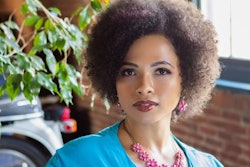GAINESVILLE, Fla.
Voters in this university city went to the polls Tuesday in an election that could strip the local government’s anti-discrimination protections for gay, lesbian, bisexual and transgender residents.
The fight began after the city commission last year revised Gainesville’s anti-discrimination ordinance to protect transgender people, those who are born one sex but identify with the other. That allows the city’s approximately 100 transgender residents to use the public restroom of their choosing, along with protecting them from job and housing discrimination.
The charter amendment on Tuesday’s ballot would void the city’s ordinances barring discrimination based on sexual orientation and gender identity.
Those supporting repeal say their message has remained consistent: “Keep men out of women’s restrooms!”
“That’s our motive, plain and simple,” said Jim Gilbert, a spokesman for Citizens for Good Public Policy.
On the other side, a group known as Equality is Gainesville’s Business is campaigning for a “no” vote on Charter Amendment 1. It argues that the city ordinance does not need amending and that the transgender argument is really a screen for a larger attack on sexual minorities. Home to the University of Florida, Gainesville is generally considered a gay-friendly city surrounded by conservative north Florida.
“This is about attacking the gay, lesbian, bisexual community and repealing protections that are in place,” said Joe Saunders, a spokesman for Equality is Gainesville’s Business.
If passed, the measure would also prohibit the city from enforcing anti-discrimination laws that protect other categories of people not specified by the Florida Civil Rights Act, which recognizes race, color, creed, religion, gender, national origin, age, handicap, martial and familial status.
A steady line of students were casting ballots Tuesday at the Reitz Student Union.
Jeanette Paulino, 20, a political science major from Miami, voted to keep the city’s policy in place.
“I don’t think we should discriminate against anyone,” she said.
Alex Harper, 21, a public relations major from West Palm Beach, said he also voted to retain the city’s protections and viewed it as a free speech issue.
Harper said he viewed the restroom issue as “conservative propaganda.”
University of Florida President Bernie Machen and his wife, Chris, said they both opposed changing the law.
“It’s not needed.” said Machen, who added that one of the things his family likes about Gainesville is its diversity.
Pricilla Santos, a 23-year-old university employee, cast her ballot at a downtown precinct. She said she voted to repeal the city’s policy because “I don’t want men in women’s restrooms.”
Polls were to close at 7 p.m.
There were 2,116 votes cast in early balloting. That’s about four times the average of 500 early voters in a city election, said Pam Carpenter, the Alachua County supervisor of elections.
She estimates that up to 30 percent of the city’s 75,219 registered voters will cast their ballots.
© Copyright 2005 by DiverseEducation.com





















